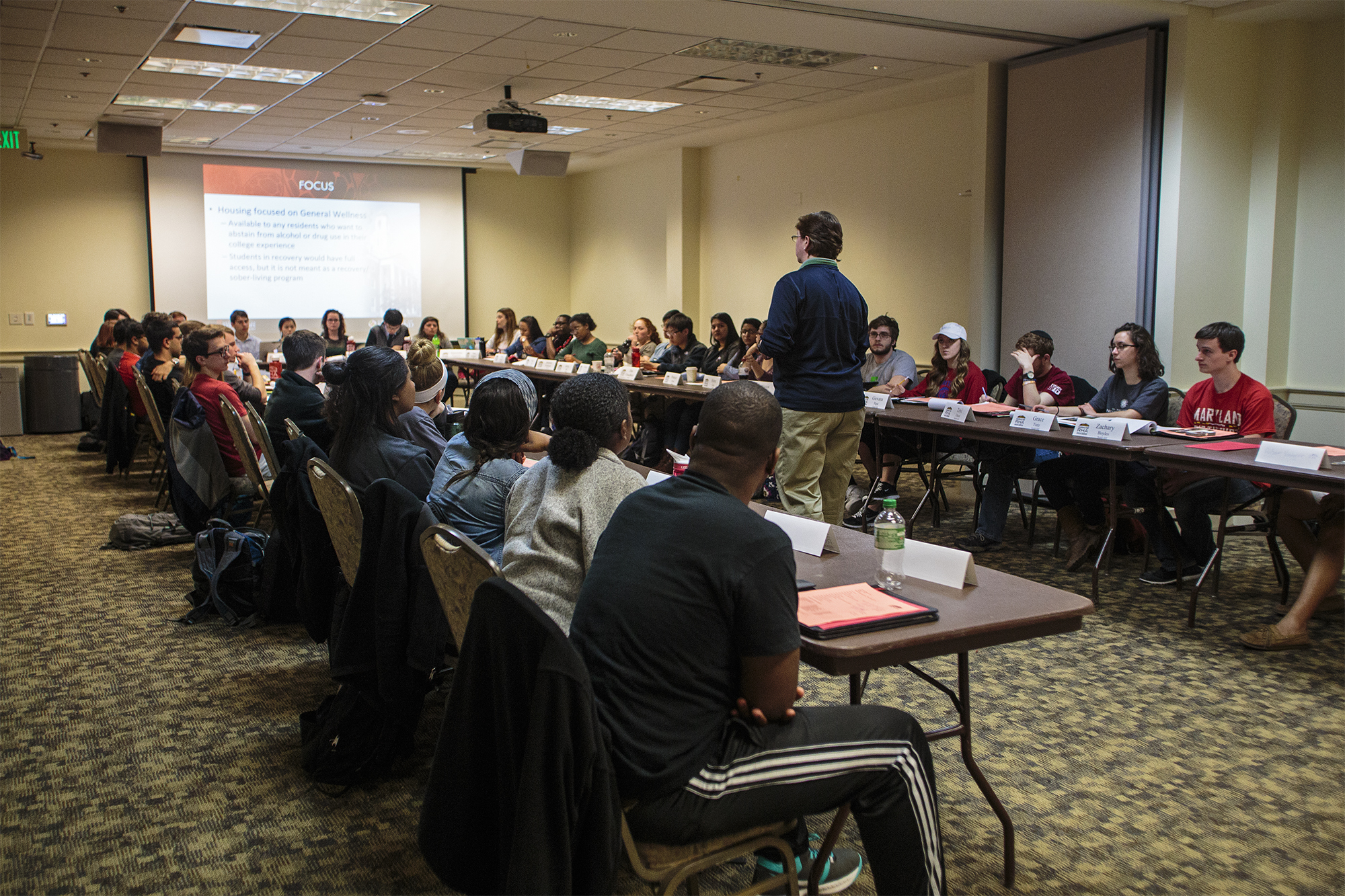The University of Maryland’s Residence Hall Association Senate passed two resolutions in its meeting Tuesday night.
The first resolution urges the Department of Transportation Services to implement a new bus route connecting South Campus Commons with the College Park Metro Station.
“The South Campus bus has been in demand by residents for a long time coming,” said Sasha Galbreath, a junior government and politics major and chairwoman of the RHA Transportation Advisory Committee. “This was really a great collaboration between RHA — through TAC — and DOTS.”
Over the past few weeks, the senate’s Transportation Advisory Committee has been negotiating with DOTS to establish a 226 South Campus Metro bus line.
To create the route, a bus will be taken from the current 104 College Park Metro bus circulation. Current wait times for the 104 hover around six minutes. Removing a bus from the circulation is expected to bump that up to eight minutes.
The 226 route would include the Paint Branch Parkway stop currently used by the 104 route to ensure students who rely on that pickup location are not left with longer wait times.
The final vote on the resolution was 35 to 1, with no abstentions.
The senate also unanimously voted to encourage the athletic department to establish what it calls “priority point nights” to incentivize attendance at nonrevenue-generating sports events.
In 2014, attendance at football and men’s basketball games averaged 46,981 and 12,557 respectively, while women’s basketball averaged just 5,236.
The resolution encourages the athletic department to distribute priority points at select low-turnout sporting events, in hopes that attendance will rise at field hockey, lacrosse and volleyball games because students will want to improve their chances in the ticket lottery for more coveted events.
“We feel that students should be attending all sporting events, regardless of whether or not it’s a men’s basketball or football game,” said Tyler Boyles, a senior accounting and finance major and the author of the resolution. “We feel that by implementing a system where we give priority points out to students, they will start to attend these games more often and give these student-athletes the recognition they deserve.”
Currently, attendance at football games builds priority strictly for other football games, and attendance at men’s basketball games builds priority strictly for men’s basketball games. Implementing priority point nights at nonrevenue-generating sports would put priority points into one giant pool and would contribute to a student’s odds in any ticket lottery.
The final vote on the resolution was 36 to zero, with no abstentions.
Also at the meeting, Erin Iverson, Department of Resident Life’s manager of assignments and public inquiry, presented the department’s preliminary ideas for a substance-free housing pilot program.
“We want every student to feel comfortable and know that they are welcome here on our campus,” she said. “We asked ourselves: Is there a way for us to create an entire environment committed to substance-free living?”
Dorms at this university already have a strict no-drug policy and a no-alcohol policy for those under 21, but Iverson said the department found many students are interested in living with peers who are also committed to abstaining from drugs and alcohol.
“We also know that some students will choose to try alcohol before they’re 21 and may come back to the residence halls while under the influence,” she said. “We’re saying that there are enough students here that are saying, ‘We are all committed to abstaining from these things.'”
One of the first things the committee did was look at the practices of peer institutions, Iverson said.
While many details still need to be ironed out, the preliminary plan is to add an additional section to the RoomSync application and the new Resident Life Profile in fall 2016 to allow students to indicate preference for substance-free living. This would allow Resident Life to hand-match students with others committed to a similar lifestyle.
The next phase would be piloting a substance-free residence hall. Resident Life is considering designating Carroll Hall as substance-free starting in fall 2017.
“Carroll Hall is on the small side — about 123 beds,” Iverson said. “A hundred beds feels like something we can start with without overcommitting and having a bunch of extra beds.”
There are still many concerns Resident Life is looking into before implementing any pilot program. The senate was particularly concerned about potential enforcement of substance-free guidelines.
“That’s a piece of what we’re still developing, because we still have to really figure out that question,” Iverson said. “Part of that hopefully comes directly from the students who are self-selecting for the community. But you’re also in college, and some of you might try an experience you haven’t had before. The question becomes: How do we deal with that?”



